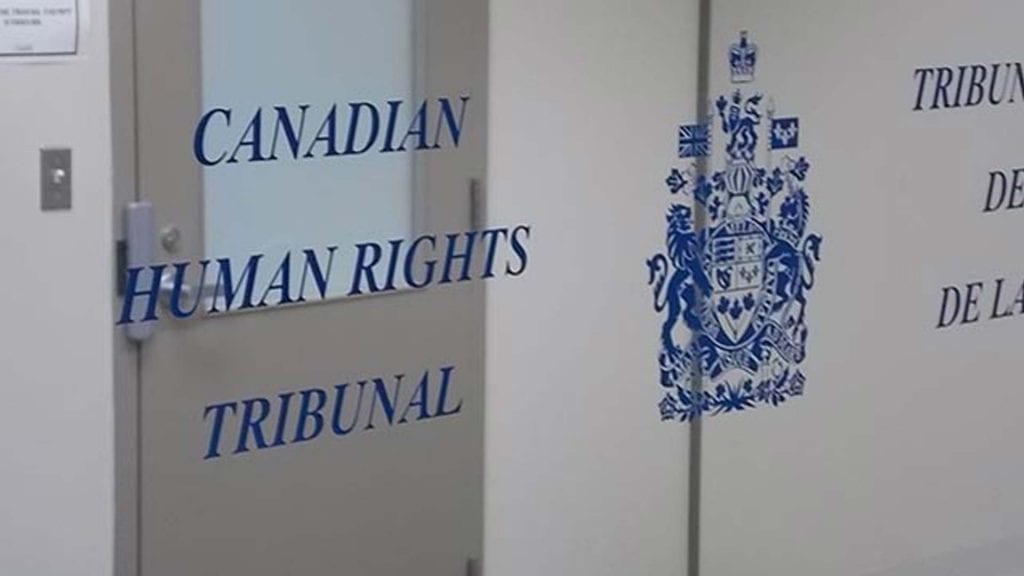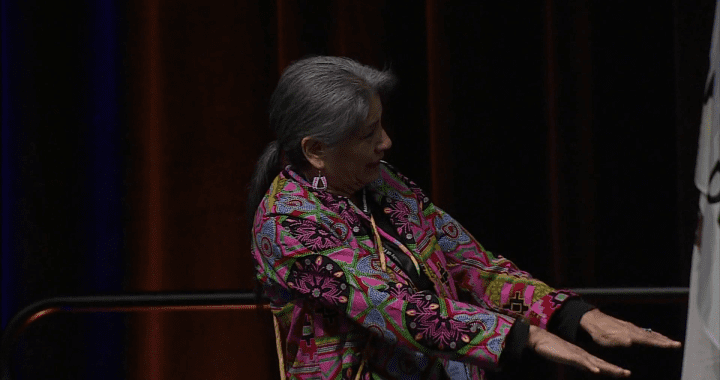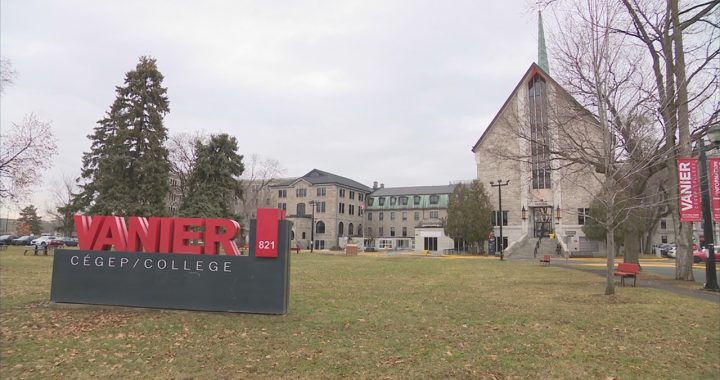
The entrance to the Canadian Human Rights Tribunal hearing room in Ottawa. Photo: APTN file
The Canadian government argues it did not racially discriminate against First Nation kids in a “willful and reckless” or “wanton and heedless” manner by underfunding the child and family services system on reserves and in the Yukon, according to documents filed in Federal Court.
Canada wants a judge to overturn two Canadian Human Rights Tribunal (CHRT) rulings that, respectively, expand criteria for Jordan’s Principle eligibility and award compensation to First Nation kids who suffered harms as a result of the state’s discriminatory conduct.
“The Tribunal’s decisions provide strong evidence that it has lost sight of the complaint,” wrote Justice Department lawyers. “Setting aside these decisions is necessary to help bring these proceedings to a fair conclusion.”
Canada also disputes the tribunal’s finding that racial discrimination continues.
“The finding that discrimination was ongoing was particularly egregious,” the lawyers wrote.
“At the Tribunal’s request, Canada had provided the Tribunal with significant evidence of the myriad ways it had responded to the Tribunal’s orders, and the billions of dollars it had spent responding to those orders.”
The lawyers also contend that, even if bureaucrats knew that First Nations’ child welfare programs were harming families, it isn’t enough to support the conclusion the discrimination was wilful and reckless.
“Changes to the flawed system were already underway when the Tribunal ruled, then further changes were made to specifically address matters identified by the Tribunal,” said the filing.
“There is no doubt the program could have, and should have, been reformed sooner. But there was no deliberate attempt to ignore the needs of First Nations children.”
The complaint dates back to 2007 when the Assembly of First Nations (AFN) and the First Nations Child and Family Caring Society brought forward a human rights complaint.
It took some initial litigation, but the tribunal eventually heard the case. It issued a landmark finding in 2016 that Canada was discriminating against kids by funding child welfare in a racist way.
It found Canada funded intervention but not prevention, creating what other court filings call a “perverse incentive” to take kids from their homes.
The tribunal ordered Canada to reform immediately. It also ordered the feds to properly implement Jordan’s Principle, which exists to ensure First Nations kids do not experience gaps or delays in obtaining services.
Ottawa did not appeal this ruling. Under the Canadian Human Rights Act, the tribunal can award damages and craft remedies wherever it concludes discrimination occurs.
It’s done this several times since 2016. It awarded maximum damages of $40,000 to kids and family members who were harmed by the underfunded child welfare system in 2019.
Then, in November 2020, the tribunal expanded Jordan’s Principle eligibility to certain non-status First Nation kids who may live off reserve.
Canada now seeks judicial review of these rulings.
The crux of Canada’s argument is that the tribunal overstepped its statutory authority and created a class-action settlement without due input from the potential class.
“The Tribunal generally has authority to compensate victims, but the parties before it were not the victims, nor was there even a representative victim,” the lawyers argue.
Class actions have to receive permission from the court and must have a lead plaintiff who represents the experience of a group of victims.
There is currently one class action dealing with these issues undergoing mediation by a retired First Nations judge.
Federal politicians indicate they would like to shepherd in a settlement similar to how they’ve resolved what they call “Indigenous childhood claims litigation,” such as residential schools or the ’60s Scoop, in the past.
“There is no dispute that systemic underfunding affected children,” said the documents. “The issue here is whether the Tribunal, rather than this Court, was the appropriate forum in which to claim individual compensation.”
Canada also pointed to a recent report from the parliamentary budget office as part of its effort to overturn the rulings.
It noted the “extreme ambiguity” arising out of the tribunal’s compensation order. Canada previously tried to have the order quashed prior to this appeal being argued.
It was unsuccessful and therefore had to submit a plan to comply with the order and pay the victims.
Under this plan, budget officer Yves Giroux concluded it may cost $15 billion because of the large number of Jordan’s Principle claimants.
But, using his own strict reading of the compensation order, Giroux concluded it would cost between $2.2 billion and $4.2 billion.
“The Tribunal did not have the evidence it required of the actual pain and suffering experienced by individuals and whether it was causally linked to unreasonable delays in the provision of services,” the lawyers wrote.
“It was, therefore, unreasonable for it to order compensation for denials and delays of Jordan’s Principle services.”
The court agreed to hear Ottawa’s appeals over five days between June 14 and June 18, 2021.
The other litigants include The Caring Society, AFN, Chiefs of Ontario, Congress of Aboriginal Peoples, Nishnawbe Aski Nation and Amnesty International.
These organizations now have a month to file their counter arguments.










